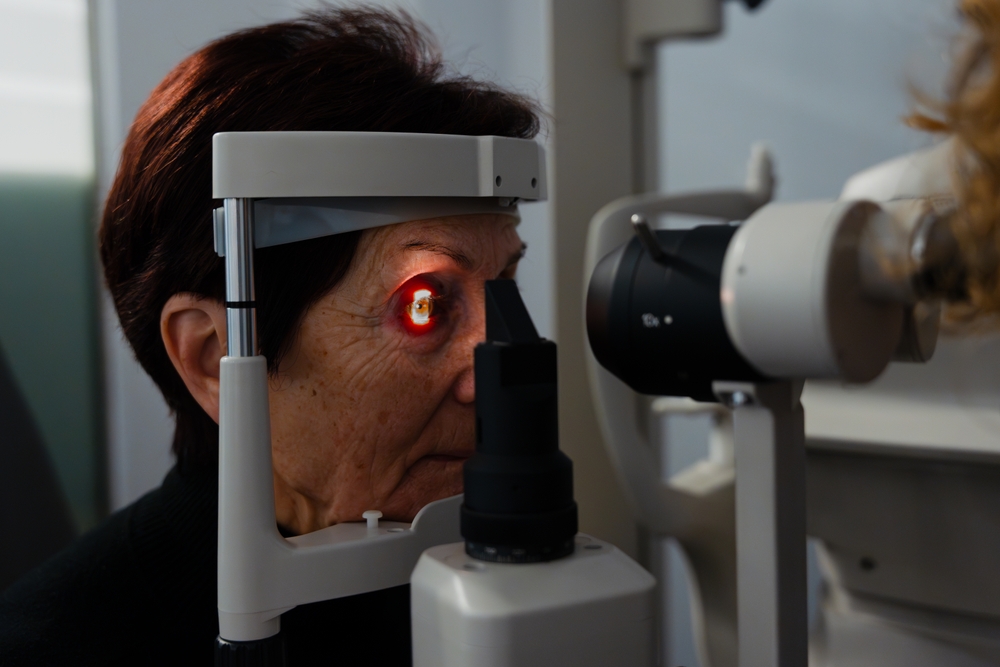
Cataracts are a common eye condition that occurs when the lens of the eye becomes clouded or opaque, impairing vision. This clouding is caused by a gradual buildup of proteins in the lens, which can happen as a natural part of the aging process. As we grow older, the lens in our eyes becomes less flexible and transparent, leading to the development of cataracts.
Risk Factor for Developing Cataracts
While age is the most significant risk factor for cataracts, there are other factors that can contribute to their development, including:
- Exposure to ultraviolet (UV) radiation from the sun
- Certain medical conditions, such as diabetes or hypertension
- Prolonged use of certain medications, such as corticosteroids
- Injury or trauma to the eye
- Smoking and excessive alcohol consumption
Cataracts can develop in one or both eyes and can worsen over time, leading to increasingly blurred or clouded vision, sensitivity to glare, and difficulty seeing at night.
The Importance of Regular Eye Exams for Early Detection of Cataracts
Regular eye exams are crucial for the early detection and management of cataracts. During a comprehensive eye exam, your eye doctor will be able to identify the presence and stage of any cataracts, as well as monitor their progression over time. This allows for timely intervention and treatment, which can help preserve your vision and maintain a high quality of life.
It's recommended that adults have a comprehensive eye exam at least once every two years, or more frequently if you have a history of eye problems or are at a higher risk of developing cataracts. By staying proactive and scheduling regular eye exams, you can take an important step towards preventing and managing cataracts.
Signs and Symptoms of Cataracts
As cataracts develop, you may experience a variety of symptoms that can impact your daily life. Some of the most common signs and symptoms of cataracts include:
- Blurred or clouded vision: This is the most common and noticeable symptom of cataracts, as the clouding of the lens can make it difficult to see clearly.
- Increased sensitivity to glare and light: Cataracts can cause increased sensitivity to bright lights, such as headlights or the sun, making it challenging to see in certain environments.
- Difficulty with night vision: Cataracts can make it harder to see clearly in low-light conditions, such as when driving at night or in dimly lit rooms.
- Faded or yellowed colors: As the lens becomes more opaque, it can cause colors to appear faded or yellowed, making it difficult to distinguish between certain hues.
- Double vision or multiple images: In some cases, cataracts can cause the lens to become distorted, leading to double vision or the appearance of multiple images.
If you experience any of these symptoms, it's important to schedule an appointment with your eye doctor for a comprehensive evaluation.
Tips for Maintaining Healthy Vision and Preventing Cataracts
While cataracts are a common age-related condition, there are several steps you can take to help maintain healthy vision and potentially delay or prevent the development of cataracts. Here are some tips to consider:
1. Protect Your Eyes from UV Exposure: Exposure to ultraviolet (UV) radiation from the sun is a significant risk factor for the development of cataracts. Wear sunglasses or UV-blocking contact lenses when spending time outdoors to protect your eyes.
2. Maintain a Healthy Diet: A diet rich in antioxidants, such as vitamins C and E, lutein, and zeaxanthin, may help reduce the risk of cataracts. Incorporate more fruits, vegetables, and whole grains into your daily meals.
3. Stay Active and Maintain a Healthy Weight: Regular physical activity and maintaining a healthy weight can help reduce the risk of developing certain health conditions, such as diabetes, that are linked to an increased risk of cataracts.
4. Quit Smoking and Limit Alcohol Consumption: Smoking and excessive alcohol consumption have been associated with an increased risk of cataracts. If you smoke, consider quitting, and limit your alcohol intake to support your overall eye health.
5. Manage Underlying Health Conditions: Certain medical conditions, such as diabetes and hypertension, can increase the risk of cataracts. Work closely with your healthcare provider to manage these conditions and keep them under control.
6. Practice Good Eye Hygiene: Regularly cleaning your hands and avoiding touching or rubbing your eyes can help prevent the introduction of bacteria or irritants that may contribute to eye health issues.
7. Schedule Regular Eye Exams: Regular comprehensive eye exams are crucial for the early detection and management of cataracts. Be sure to schedule these appointments as recommended by your eye doctor.
By incorporating these tips into your daily routine, you can take proactive steps to maintain healthy vision and potentially delay or prevent the development of cataracts.
Taking Proactive Steps for Maintaining Healthy Vision
Your vision is a precious asset, and taking the time to care for your eyes can help you enjoy clear, vibrant sight for years to come. By incorporating these tips and strategies, you can take an active role in preserving your eye health and maintaining your independence and quality of life.










